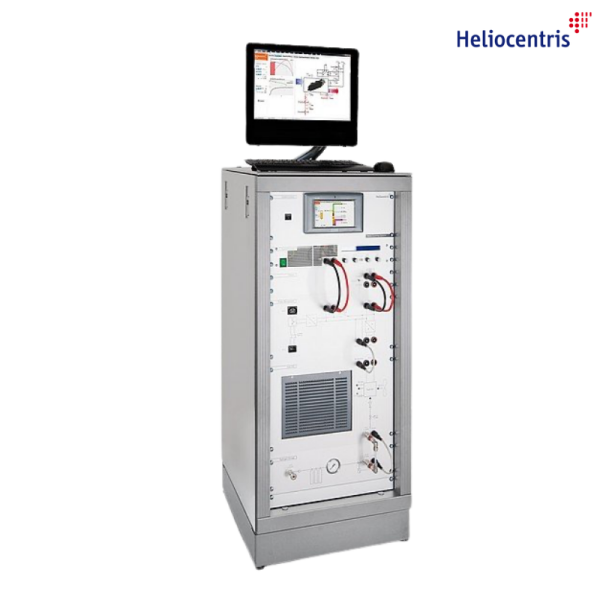Hybrid Energy Lab – System

Hybrid Energy Lab System
KEY FEATURES
The system provides an experimental platform for advanced training to applied research:
- Fuel Cell – Battery Hybrids
- Battery Charging/Discharging
- Battery & Fuel Cell Model Analysis & Comparison
- Calculation & Evaluation of Electrical Characteristics
- Energy Management
- User Developed Control Algorithms
- Validation of Models Against a Real System
- Hybrid Power System Set-ups: UPS, Autonomous Power Supply, Back-up Power System, HEV/FCEV
SYSTEM OVERVIEW
Control and Experimentation PC
- System Overview
- Real-Time Display & Data Measurements
- Execution of experiments
System Overview Module
- Display for system parameters and controlling
Electronic Load
- Simulation of electrical loads
- Operating modes: CC, CV, CP, CR
- Manual or software-supported control
Battery System Module
- Selection of the battery capacity
- Connecting external batteries possible
Power Electronics Module
- Configuration of the battery charging regulation
- Preparation of regulated DC or AC voltage
- Inverters with power through circuit
- Sensor system
Fuel Cell Module
- Well established Nexa 1200 W fuel cell
- Unegulated DC Outpout
- Hydrogen consumption measurement
- Stack temperature monitoring
H2 Storage Module
- Heliocentris Metal Hydride Canister
- Storage temperature monitoring

Range Extender
- Planning of system switching
- Range calculation of the overall system
Autonomous Power Supply
- System runs disconnected from the grid so it must be dimensioned to operate autonomously at all times
- Starts from internal energy supply
Hybrid Electric Vehicles
- The system design allows for the same configurations found in typical
- Fuel Cell Hybrid Electric Vehicles (FCEV)
Uninterruptible Power Supply (UPS)
- In UPS mode, the system provides continuous power in case of grid failure to ensure continuous power
- Automatic switching between battery & fuel cell operation
INSTRUCTION AND EXPERIMENTATION MATERIALS
Extensive training material assists the teacher in creating a more interactive and specialized classroom experience. Prepared experiments and software-supported exercises simplify the use of the system.
Experimentation manual with:
- Learning goals and content: Instructions for the execution of experiments & Topic-specific questions and sample answers
- Evaluation templates
- Detailed operating manual
Experiments including:
- System design for special applications: Backup, Emergency power supply (UPS), Autonomous power supply,Boost, range extender
- Examination of the operating behavior of: Battery module, Fuel cell module, DC converter
- Determination of the efficiency and energy conversion
- Examination of load step changes of up to 1.5 kW
- Generation of characteristic curves



